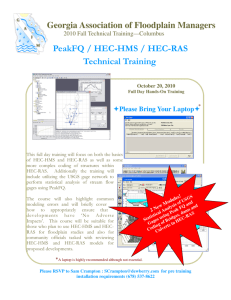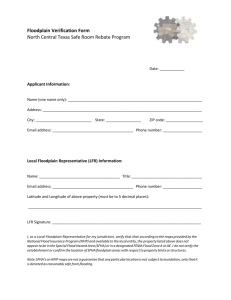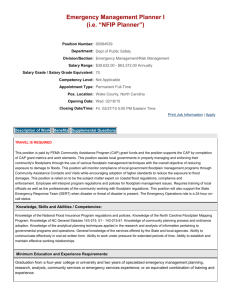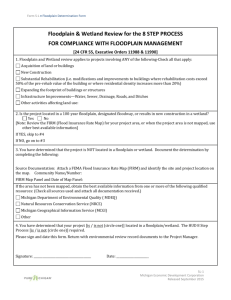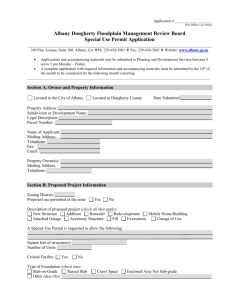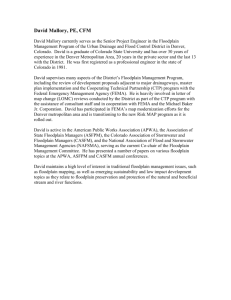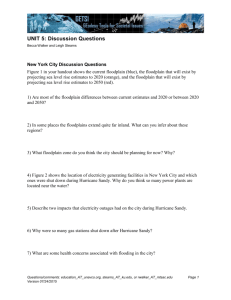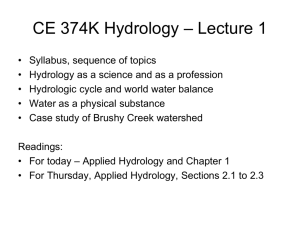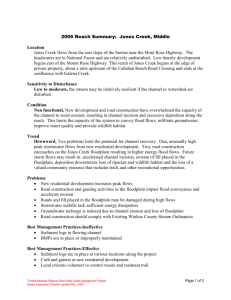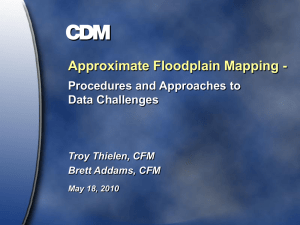FinalReview
advertisement
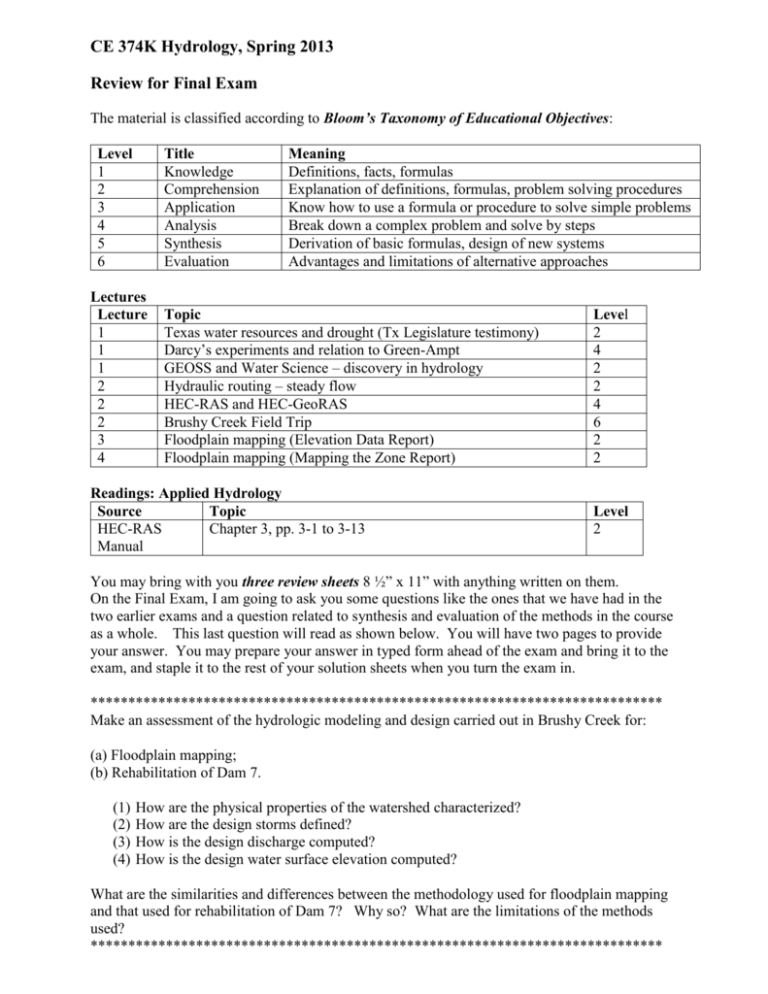
CE 374K Hydrology, Spring 2013 Review for Final Exam The material is classified according to Bloom’s Taxonomy of Educational Objectives: Level 1 2 3 4 5 6 Title Knowledge Comprehension Application Analysis Synthesis Evaluation Lectures Lecture 1 1 1 2 2 2 3 4 Meaning Definitions, facts, formulas Explanation of definitions, formulas, problem solving procedures Know how to use a formula or procedure to solve simple problems Break down a complex problem and solve by steps Derivation of basic formulas, design of new systems Advantages and limitations of alternative approaches Topic Texas water resources and drought (Tx Legislature testimony) Darcy’s experiments and relation to Green-Ampt GEOSS and Water Science – discovery in hydrology Hydraulic routing – steady flow HEC-RAS and HEC-GeoRAS Brushy Creek Field Trip Floodplain mapping (Elevation Data Report) Floodplain mapping (Mapping the Zone Report) Readings: Applied Hydrology Source Topic HEC-RAS Chapter 3, pp. 3-1 to 3-13 Manual Level 2 4 2 2 4 6 2 2 Level 2 You may bring with you three review sheets 8 ½” x 11” with anything written on them. On the Final Exam, I am going to ask you some questions like the ones that we have had in the two earlier exams and a question related to synthesis and evaluation of the methods in the course as a whole. This last question will read as shown below. You will have two pages to provide your answer. You may prepare your answer in typed form ahead of the exam and bring it to the exam, and staple it to the rest of your solution sheets when you turn the exam in. **************************************************************************** Make an assessment of the hydrologic modeling and design carried out in Brushy Creek for: (a) Floodplain mapping; (b) Rehabilitation of Dam 7. (1) (2) (3) (4) How are the physical properties of the watershed characterized? How are the design storms defined? How is the design discharge computed? How is the design water surface elevation computed? What are the similarities and differences between the methodology used for floodplain mapping and that used for rehabilitation of Dam 7? Why so? What are the limitations of the methods used? ****************************************************************************

